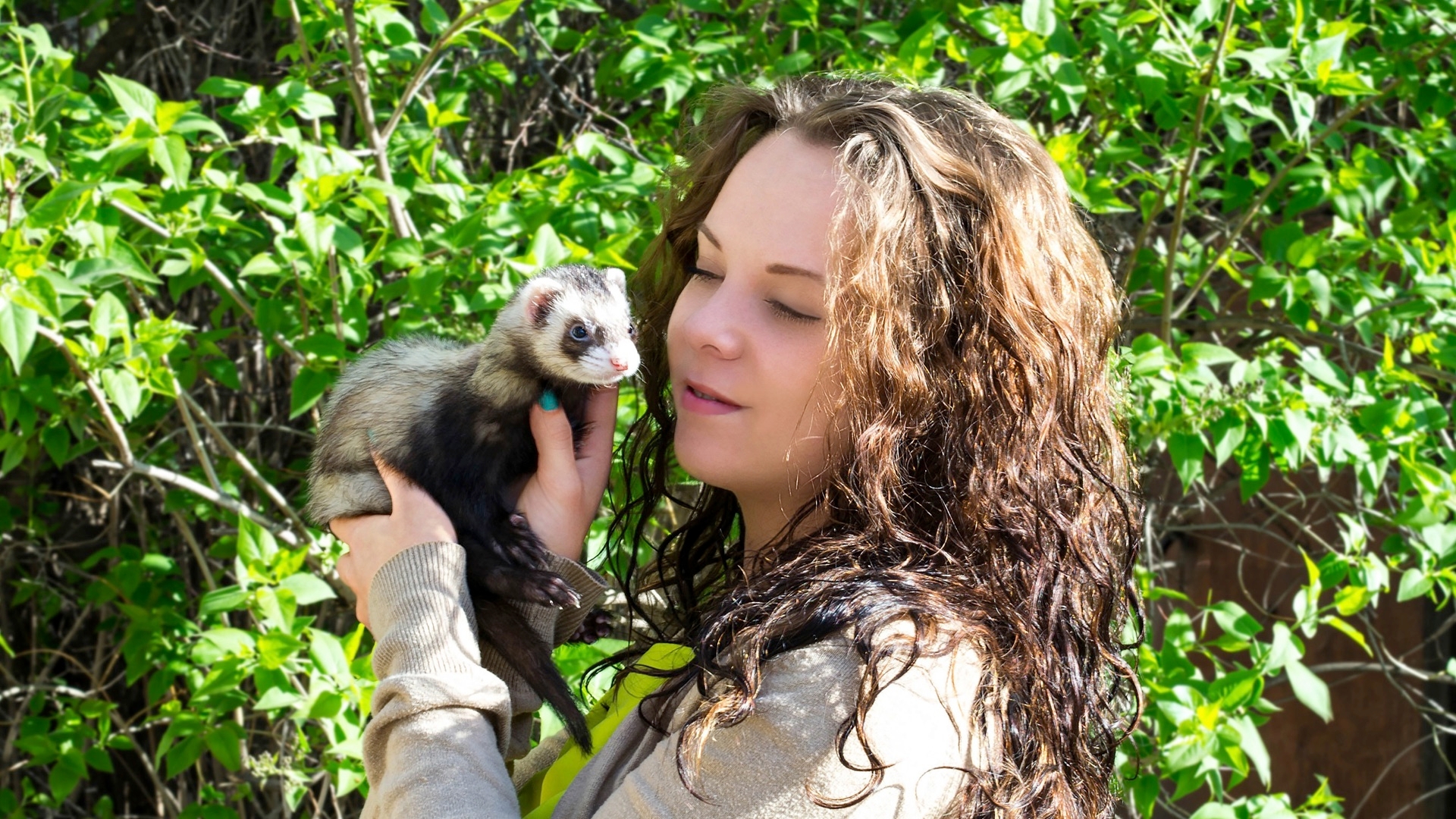Are You Considering A Ferret?
Summary:
Ferrets have become common household pets in the United States, and their curious and friendly nature makes them suitable pets for many. Ferret owners should be aware that although ferrets can make good pets, they can sometimes carry germs that can make people sick.
Ferrets have become common household pets in the United States, and their curious and friendly nature makes them suitable pets for many. Ferret owners should be aware that although ferrets can make good pets, they can sometimes carry germs that can make people sick. Ferrets are also not recommended for homes with children under 5 years of age because of the increased risk of injury from bites.
Although rare, germs from ferrets can cause a variety of illnesses in people, ranging from minor skin infections to serious illnesses. One of the best ways to protect yourself from getting sick around ferrets is to thoroughly wash your hands with running water and soap after handling ferrets, their food, or items in their enclosures.
By providing your ferret with routine veterinary care and following the Healthy People tips, you are less likely to get sick or injured interacting with a ferret.
Healthy Ferrets
Keeping your ferret healthy helps to keep you and your family healthy. To learn how to stay healthy around pet ferrets, visit the Healthy People section.
Before choosing a Ferret
- Check your state, local, and property laws before choosing or buying a ferret. Just because you can buy a pet doesn't mean that it is legal to own it in your city, state, or property.
- Research and learn how to properly care for your ferret before purchase. Ask your veterinarian or pet store staff about the proper food, care, and enclosure or environment that is best for the ferret you are selecting.
How to choose a ferret
- Pick a ferret that is bright, alert, and active.
- Ferrets should have a glossy coat free of stool. If any animals in a cage look sick, do not choose a pet from that cage.
- Signs of illness in a ferret include appearing sluggish or depressed, having diarrhea, abnormal breathing, and fluid running from its eyes or nose.
- Consider having a veterinarian examine your new ferret before you finalize the purchase or adoption to ensure that it is healthy.
- After selecting your new pet, make sure to take your new ferret to the veterinarian within a few days to a week after adoption for a health visit.
- If your ferret becomes sick or dies soon after purchase or adoption, take it to the veterinarian promptly, and inform the pet store, breeder, or rescue organization about the pet's illness or death. A female ferret
How to house your ferret
- Because of their curious nature, ferrets can be escape artists. House your ferret in a cage that can be securely closed and/or locked.
- Keep your ferret out of the kitchen and other areas where food or drink is prepared or consumed. Do not eat or drink while handling your pet.
- Make sure your ferret has access to food and fresh water every day.
- Do not allow your ferret to roam unsupervised.
- Wash your hands thoroughly with soap and water after handling ferrets or their food, cages, or bedding. Hand washing will reduce the risk of germs spreading from your ferret to you and your family.
- Avoid bites and scratches from ferrets by learning how to approach and hold your pet safely.
- Always use disposable gloves or plastic bags when cleaning up poop from your pet. Be careful to peel off the gloves inside out so you do not touch the outside. Wash your hands thoroughly afterwards.
Monitor your ferret's health
- Take your ferret to a veterinarian every year, or if it seems sick. Veterinarians who focus or specialize in small mammals, including ferrets, can provide extra guidance on caring for your pet.
- Talk to the veterinarian about rabies vaccination.
- Examine your ferret daily, looking for any changes in activity level, appetite, or overall health. Specifically, look for:
- Sluggish or depressed behavior
- Dull hair coat
- Loose stool (poop)
- Discharge from the eyes or nose
- Abnormal breathing
- These signs could mean your ferret is sick. If your ferret appears sick or shows these signs, contact your veterinarian immediately.
- Be aware that ferrets can shed Salmonella and other germs. Avoid contact with animal poop and urine because it can make you sick.
- Wash your hands thoroughly with soap and water after feeding or cleaning up behind ferrets. Be sure to help children wash their hands.
- If you become sick shortly after purchasing or adopting a ferret, tell your doctor about your new pet.
Ferrets and influenza (flu)
Ferrets can be infected with influenza A and B viruses (human flu), just like people. People can spread flu to ferrets, and it's possible that ferrets may be able to spread flu to people. If you have a pet ferret at home, you should:
- Get a yearly flu vaccine.
- There is no vaccine for flu in ferrets, so the best way to protect your pet is to protect yourself from flu.
- Avoid contact with your pet ferret if you or any members of your household have flu symptoms.
- Prevent family members with flu from interacting with pet ferrets while sick. Consider having a friend, neighbor, boarding facility, or veterinarian care for your pet ferret while those in your household recover from the illness.
- If contact with your pet while you are sick is unavoidable, use a face mask and gloves to prevent the spread of flu. Also, wash your hands before and after interacting with your ferret.
- If you have multiple pet ferrets, isolate sick ferrets from the others promptly. Contact your veterinarian immediately to evaluate the health of your ferrets and discuss how to prevent the spread of flu to your other pet ferrets.


